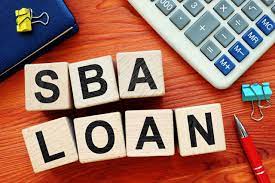Starting or growing a business requires financial resources, and one of the most popular options for entrepreneurs and small business owners is the Small Business Administration (SBA) loan. In 2023, as economic landscapes continue to evolve, understanding how to secure an SBA loan is more crucial than ever. In this blog, we will explore the ins and outs of SBA loans, helping you take the necessary steps to secure the funding your business needs.
What is an SBA Loan?
The Small Business Administration is a United States government agency that supports small businesses by offering various financial assistance programs. One of the most well-known and utilized programs is the SBA loan. These loans are not directly provided by the SBA; instead, they are issued by participating lenders (such as banks and credit unions) but are backed by the SBA. This backing makes SBA loans more accessible to small business owners who might not qualify for conventional loans due to limited collateral or credit history.
Types of SBA Loans
In 2023, the SBA offers several loan programs tailored to different business needs. Understanding the types of SBA loans available can help you choose the one that suits your business best:
-
SBA 7(a) Loan: This is the most popular SBA loan program and can be used for a variety of purposes, such as working capital, equipment purchase, or debt refinancing.
-
SBA 504 Loan: Ideal for real estate and equipment purchases, the SBA 504 loan provides long-term, fixed-rate financing.
-
SBA Microloan: If you need a smaller amount of capital, the SBA Microloan program offers loans of up to $50,000 to help small businesses start and expand.
-
SBA Disaster Loan: In times of natural disasters, the SBA offers low-interest disaster loans to help businesses recover.
Eligibility and Application Process
Securing an SBA loan involves meeting specific eligibility criteria and going through a thorough application process. Key factors to consider include:
-
Business Qualifications: Your business must meet SBA size standards, be for-profit, and operate within the United States.
-
Personal Qualifications: Lenders will evaluate your personal credit history and financial stability.
-
Business Plan: A well-structured business plan is often a requirement for SBA loan applications. It should outline your business goals, financial projections, and how you plan to use the loan.
-
Collateral: While SBA loans typically require less collateral than conventional loans, some collateral may still be needed.
Tips for a Successful SBA Loan Application
Securing an SBA loan can be a competitive process, but here are some tips to increase your chances of success:
-
Prepare a Solid Business Plan: A well-thought-out business plan is crucial. It should demonstrate your understanding of your business and its potential for success.
-
Maintain Good Credit: A strong personal and business credit history will work in your favor.
-
Work with an SBA-Preferred Lender: These lenders have a track record of successfully processing SBA loans and can guide you through the application process.
-
Be Patient and Persistent: The SBA loan approval process may take some time, so be patient and stay persistent throughout.
Conclusion
In 2023, SBA loans continue to be a valuable resource for small business owners looking to secure financing. Understanding the various types of SBA loans, eligibility requirements, and the application process is key to successfully obtaining the funding your business needs. By following the tips provided in this blog, you can navigate the world of SBA loans with confidence and increase your chances of securing the financial support your business requires.



